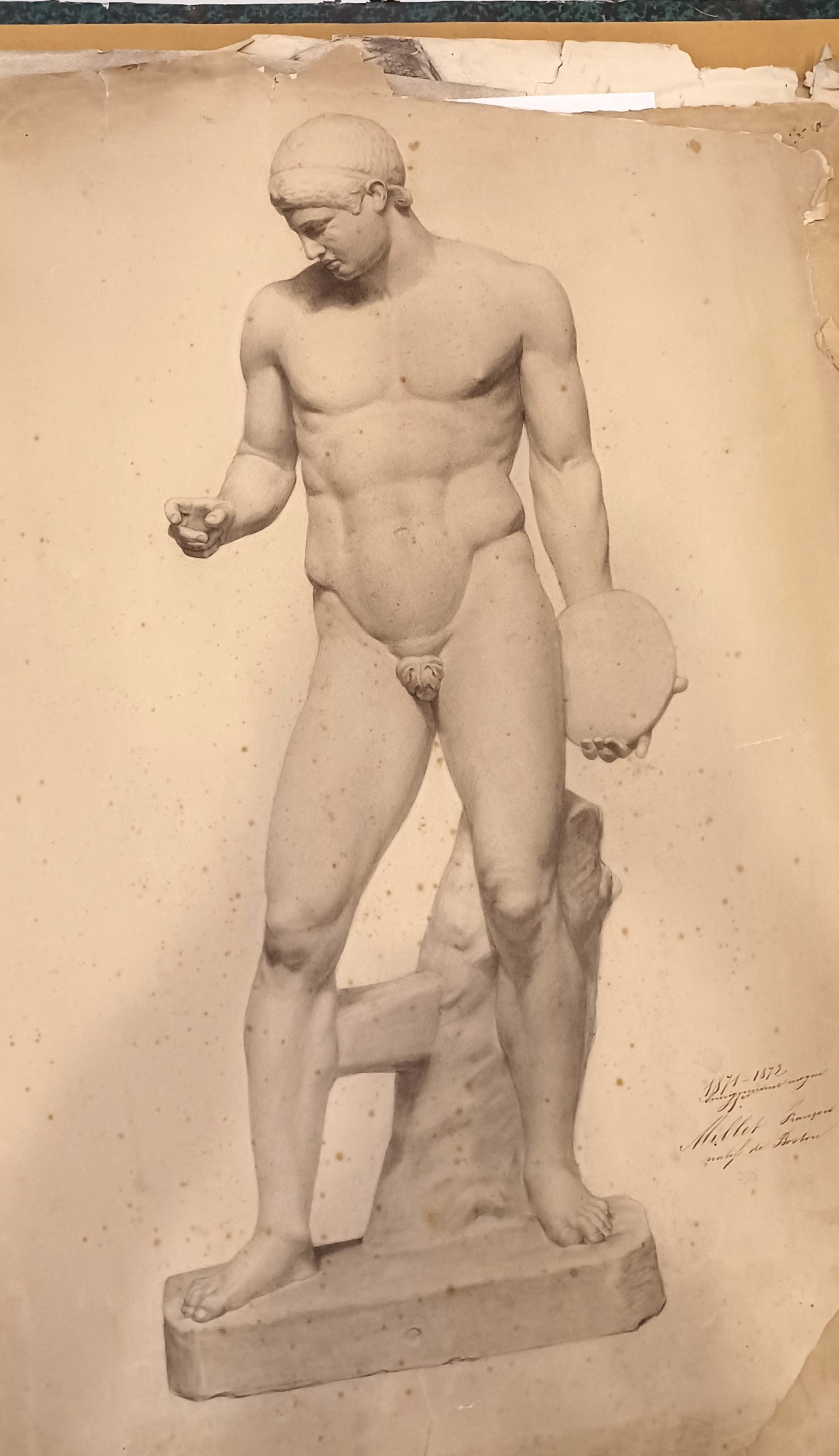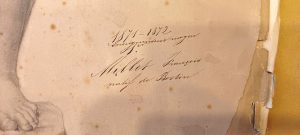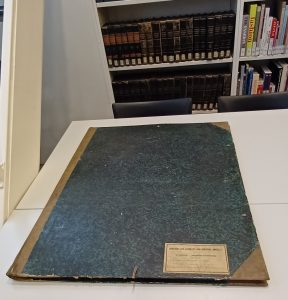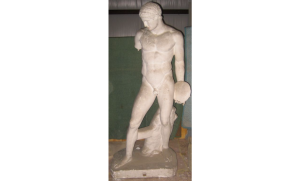
1872, Naukydes Discobolus Charcoal & Chalk Drawing
Date: 1872
Dimensions: Height: 76 cm ( 29.9 in.), Width: 57.8 cm ( 22.75 in.)
Medium: Drawing – Charcoal & Black Chalk on Paper
Owner/Location: Royal Academy of Art, Antwerp, Belgium
Description
Naukydes Discobolus (Now-khi-dus Disk-oboe-lus) drawing by Francis Davis Millet was drawn
for the 1871-1872 semester Student Art competition. under the supervision of an Academy proctor.. Each student had a specific time limit, and was provided the paper and drawing materials so each competition piece was equally judged by the jurors. In his first year at the Academy, Millet won the Silver Medal.

The proctor for the competition signed and dated each competition piece with the students name and hometown location upon completion.

The drawing was discovered by Dr. Ulrike Muller and an associate, in the above portfolio housed in the library of the Royal Academy of Fine Arts, Belgium when they were conducting research into the use of plaster casts for teaching art students in the leading European art academies during the 19th century. The portfolio contained several Antwerp academy student drawings from the 1872 student competition.
 Unknown, Roman Copy, photographed by Annetta Alexandridis. Cornell Cast Collection, Cornell University Library.
Unknown, Roman Copy, photographed by Annetta Alexandridis. Cornell Cast Collection, Cornell University Library.
Discus throwing athlete statues were very prized in Greek culture because people who owned a statue of this style were seen as more cultured and refined. The grace and power of the athlete was seen as perfection in human form. Possibly the most famous discus throwing statue still existent is Myron’s statue of the athlete with the throwing arm and discus extend out and up into the air behind the athlete as he bends forward just at the moment that he is about to fling the discus forward. However, Naukydes discus thrower was also a very popular version, with the athlete in contemplation before his attempt at throwing. This contemplative moment is very similar to the contemplative pose Michelangelo chose for his version of David about to face the giant.
The Greek sculptor Naukydes was born in Argos and worked c.420–390BC, producing works in bronze which are mentioned in ancient sources but no longer survive. He seems to have specialized in statues of athletes: the Roman author Pliny stated that Naukydes made a Discobolos, long believed to be associated with Roman copies representing an athlete holding a discus.
A cast of this work is in the RA London, collection. https://goo.gl/maps/bZy5eBX61oozefUw6
The following year, 1872- 1873 semester Millet went on to win the Gold Medal, which was presented by King Leopold II. Millet is the only student to have ever won successive silver and then Gold medals in the student art competitions still held today. Please see the Laurel Wreath photo from 1873 in the website Gallery.
Exhibitions / Provenance
Exhibitions:
Provenance:
Drawing held by the Royal Academy of Fine Arts from 1872 until the present.
Literature
Research:
Publications:
